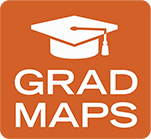- Program Prerequisite: (1) Complete the Pre-professional Core courses listed in the next column under Major Course Requirements; (2) Declare your Family Studies major with the department academic advisor; (3) Complete a background check and clearance (see Policy Notes).
- Minor: A minor is required.* Optional: In lieu of a minor, a specialization of 12-18 semester hours may be substituted as approved by the department advisor. Six of these hours must be upper division (courses numbered 3000 and above).
- Grade Requirements: A grade of C or better in courses required for this major (a grade of C- is not acceptable). Students will receive the final grade they have earned in each course. If a grade in a major course does not meet the minimum requirement for graduation, the student may retake the course once. In special circumstances, by the judgment of the department chair, the student may petition to the Family Studies or Early Childhood Committee, as appropriate, to graduate with the lower grade. Also refer to the grade requirements for graduation under General Requirements .
- Credit Hour Requirements: A total of at least 120 credit hours is required for graduation; a minimum of 48 of these must be within the major. A total of 40 upper division credit hours is required by the University (courses numbered 3000 and above); 33 of these are required within the major.
- Program Code: 5003BS
- CIPC: 190704
Advisement
Students must follow the Department of Child and Family Studies Advisement procedures. Contact the department advisor located in McKay Education Building, Room 248 (801-626-6411). (Also refer to the Department Advisor Referral List.)
 Use Grad MAPs to plan your degree
Use Grad MAPs to plan your degree
Admission Requirements
Declare your program of study (see Program of Study (Major/Minor) Declaration ). To be eligible for acceptance into and graduation from the Family Studies Program a candidate must:
- Complete all of the Pre-professional Core courses listed under Course Requirements.
- Declare the Family Studies major with the department academic advisor.
- Complete a background check and clearance (see Policy Notes).
Policy Notes
Since students majoring in Family Studies will be working with families and children, the State of Utah requires a background check and clearance. Applicants must be fingerprinted and complete a background check before being fully accepted into the program. A handout available from the department secretary explains the procedure and nominal expenses. Background checks require up to eight weeks and should be completed, or in progress, at the time Family Studies Program courses are begun. See the department secretary for further details.
General Education
Refer to Degree and General Education Requirements for Bachelor of Science requirements.
* Family Studies students may combine their major with either a minor or a dual major. Consult with an advisor when designing a dual major. Minors may be selected from department minor offerings across campus. Typical minors include Psychology, Sociology, Gerontology, Social Work, Communications, and/or Business. A minor should be designed to best support personal goals or career directions.
The Family Studies program fulfills the requirements for provisional certification as a Family Life Educator, available by application and paid fee to the National Council on Family Relations. Full certification requires two years of paid professional experience in addition to the Family Studies degree. Provisional certification allows five years to complete the two-year requirement.